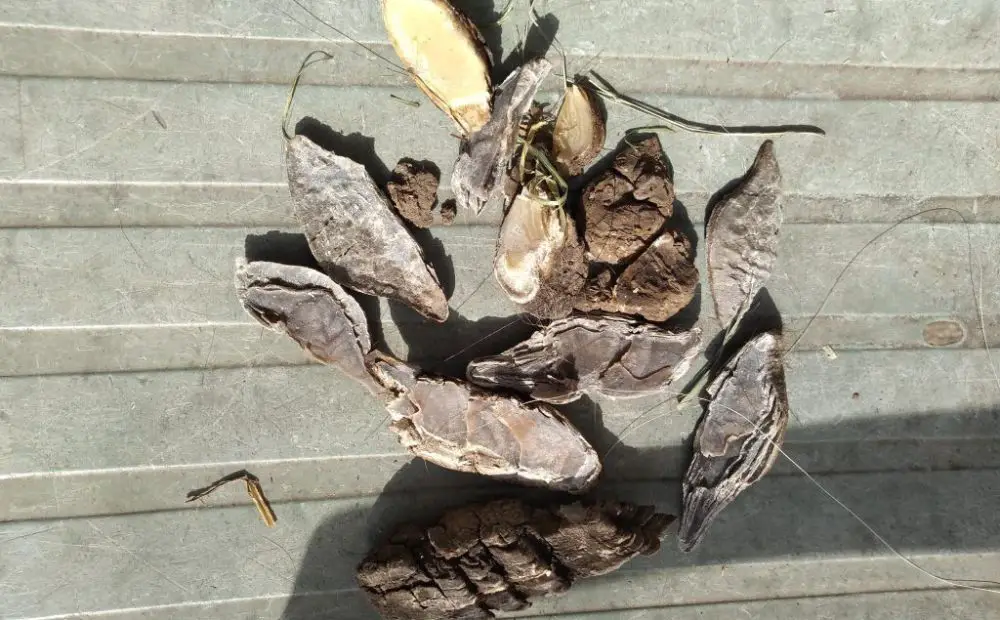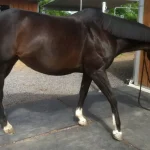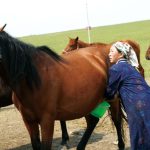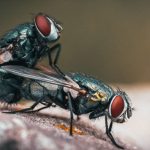Are Horse Chestnuts Good for Dogs? No, horse chestnuts are not good for dogs. They contain a toxic substance called Aesculin, which can cause severe gastrointestinal distress if ingested by a dog. Symptoms of poisoning include vomiting, diarrhea and abdominal pain.
Ingestion of large amounts may even lead to death due to the high levels of toxins present in the nuts. Furthermore, other compounds such as tannins can also be dangerous when consumed by dogs and should be avoided. If you suspect your dog has eaten any horse chestnuts it is important that you take them to the vet immediately for treatment.
Horse chestnuts are a popular natural remedy for humans, but what about dogs? While horse chestnuts offer some benefits to dogs in the form of antioxidants and anti-inflammatory properties, it is important to be aware that they can also be toxic if ingested in large amounts. Therefore, it’s best not to give your dog access to these nuts on their own and always consult with your veterinarian before giving them any supplementation containing horse chestnut extract.
Are Horse Chestnuts Edible
Horse chestnuts are not edible for humans and should not be consumed in any form. They contain a toxic glycoside called Aesculin, which is poisonous to humans. Additionally, the seeds of horse chestnuts contain the toxin saponin which can cause gastrointestinal distress if ingested.
For these reasons, it is best to avoid consuming horse chestnuts in any capacity.
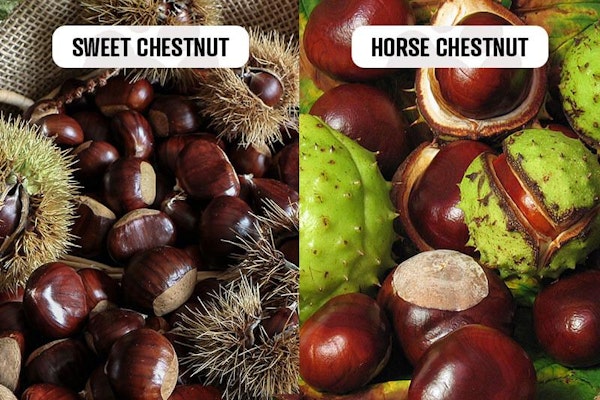
Are Horse Chestnuts Toxic to Dogs?
The short answer to the question of whether horse chestnuts are toxic to dogs is yes. Horse chestnuts, also known as conkers, are a type of nut that can be found throughout much of Europe and Asia. Unfortunately, these nuts contain alkaloids which can be very harmful if ingested by dogs.
Ingestion of horse chestnuts can lead to digestive upset including vomiting and diarrhea in some cases. If the dog consumes a large enough quantity it could even cause them severe discomfort or even death due to respiratory failure caused by their body’s inability to process the toxins present in the nuts. As such, it is important for pet owners to keep any areas where their pets have access free from horse chestnut trees or plants bearing these nuts so as not to risk harm coming from ingestion by curious four-legged family members!
What are the Symptoms of Horse Chestnut Poisoning in Dogs?
Horse chestnut poisoning in dogs can be a serious and potentially fatal condition. Symptoms of horse chestnut poisoning usually appear within hours to days after ingestion and may include vomiting, diarrhea, loss of appetite, dehydration, lethargy, muscle tremors or seizures, disorientation or confusion, abdominal pain or tenderness, excessive salivation and difficulty breathing. If you suspect your dog has eaten any part of the horse chestnut tree (including leaves or nuts), contact your vet immediately as they will need to monitor them closely for signs of toxicity.
To prevent further damage it is important that appropriate treatment is started as soon as possible; this could involve inducing vomiting to eliminate toxins from the body. In more severe cases hospitalization may be necessary where intravenous fluids are given along with other supportive therapies such as intravenous antibiotics to help reduce inflammation in the gastrointestinal tract caused by toxins absorbed into the bloodstream.
Are Chestnuts off of Horse’s Legs Good for Dogs?
The answer is yes, chestnuts off of horses’ legs can be good for dogs in certain circumstances. Chestnuts are a great source of nutrition and vitamins that are important to the healthy development and growth of your pup. They contain essential vitamins like B-complex, as well as minerals such as magnesium, phosphorus, potassium and zinc.
Additionally, chestnuts have a high content of dietary fiber which helps promote digestive health in dogs and can help regulate their blood glucose levels if given on an appropriate schedule. Furthermore, since chestnuts are harvested from the leg area of horses where there isn’t much movement or pressure placed on them by the horse’s weight they tend to be softer than other nuts and more suitable for smaller breeds which often have difficulty chewing harder foods. That being said it is important to note that when feeding your dog chestnuts collected from horse legs you should always make sure they’re properly cleaned before giving them to your pup – this will help ensure any potential dirt or debris doesn’t cause any harm or upset stomachs!
Are Horse Chestnuts Edible for Animals?
Horse chestnuts are a popular treat for many animals, including horses, ponies, donkeys and mules. The large nuts have high levels of energy and protein which make them an excellent source of nutrition for these animals. However, it is important to note that horse chestnuts are only edible when cooked properly.
Raw or undercooked horse chestnuts can be dangerous as they contain the toxin esculin which can cause gastrointestinal distress in some animals if ingested. While some species may be able to tolerate small amounts of raw or undercooked horse chestnuts with no ill effects, it is best to avoid feeding them at all unless you are certain that your animal has been trained on how to eat them safely. For those looking for a safe way to feed their animal friends horse chestnuts without any risk of harm, boiled or roasted nuts can provide a nutritious snack without any risks associated with consuming the toxins present in raw nuts.
Horse chestnut 🌰 100% natural dog treats! #asmr #doglover #equestrian #farrier #horse
Conclusion
In conclusion, horse chestnuts are safe for dogs to consume but should be done in moderation. As long as the dosage is kept low, it can provide numerous health benefits such as improved joint mobility and reduced inflammation. However, if your dog has a known allergy or sensitivity to any of the ingredients in horse chestnuts then you should avoid giving them this supplement altogether.
It’s always best to consult with your veterinarian before adding any new product to your pet’s diet to ensure their safety and well-being.

